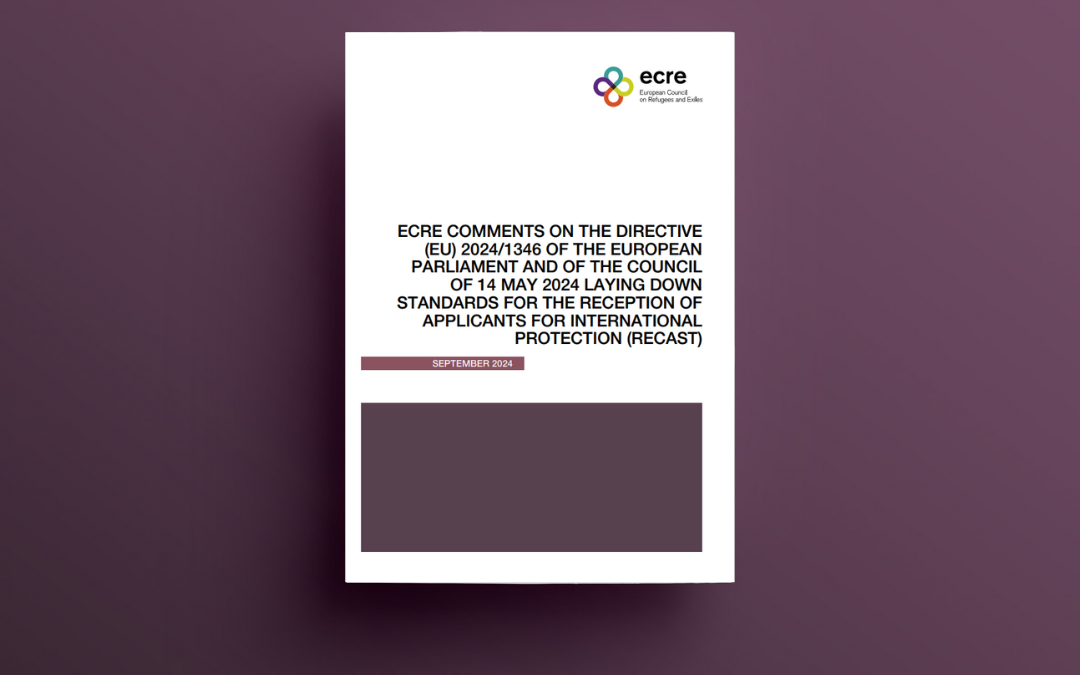ECRE has published a comments paper on the recast Directive Laying Down Standards for the Reception of Applicants for International Protection, commonly known as the Reception Conditions Directive (RCD). The RCD was adopted in May 2024 as one of the central pillars of the reformed Common European Asylum System (CEAS).
This comments paper is the latest in the series of ECRE analyses of the legislation that collectively forms the Pact on Migration and Asylum. It follows comments papers on the Regulation on Asylum and Migration Management, and the Regulation on Addressing Situations of Crisis and Force Majeure in the Field of Migration and Asylum. It should be read together with the ECRE comments paper on the European Commission proposal to recast the 2013 RCD and its analysis of the May 2018 interinstitutional political agreement on it and several other legislative proposals.
In ECRE’s view, the new RCD brings about positive and negative changes when analysed from the perspective of fundamental rights. As was the case with the other pieces of legislation that were agreed in 2018, the new RCD is more balanced than the proposal that was launched in 2020. Positive changes include clearer definitions of material reception conditions and strengthened requirements on the standards applicable to all forms of accommodation. In addition, provisions on contingency planning are intended to prevent “crises” and challenges in reception systems. In terms of socio-economic rights, the new RCD provides that access to the labour market must be granted at an earlier stage (six months maximum).
Nonetheless, other changes included in the new RCD allow for the withdrawal and reduction of reception conditions in a wider range of circumstances (including absconding) and, notably, removal of entitlement to reception conditions is required when the applicant is not in the EU member state (MS) responsible, a measure which forms part of the punitive approach that runs throughout the CEAS reforms. Even when reduction and withdrawal are applied, minimum standards must still be ensured.
ECRE’s analysis of the changes that have been introduced by the new RCD are strongly informed by the many assessments of the implementation of the 2013 RCD which indicate areas where improvements are necessary. While transposing the new elements of the 2024 recast and planning how to manage these changes, ECRE believes that EU MS must also tackle the longstanding and well-documented implementation gaps, not least because many have been neglected or deprioritised during the reform process whereas the legal obligations concerned remain central elements of the recast RCD.
The comments paper is available here.

